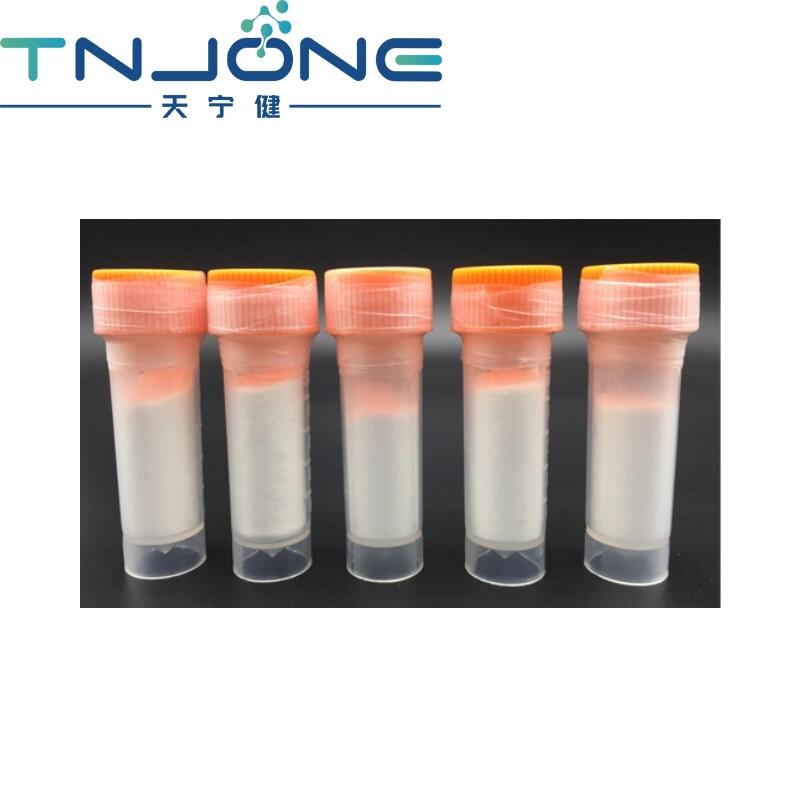-
Categories
-
Pharmaceutical Intermediates
-
Active Pharmaceutical Ingredients
-
Food Additives
- Industrial Coatings
- Agrochemicals
- Dyes and Pigments
- Surfactant
- Flavors and Fragrances
- Chemical Reagents
- Catalyst and Auxiliary
- Natural Products
- Inorganic Chemistry
-
Organic Chemistry
-
Biochemical Engineering
- Analytical Chemistry
-
Cosmetic Ingredient
- Water Treatment Chemical
-
Pharmaceutical Intermediates
Promotion
ECHEMI Mall
Wholesale
Weekly Price
Exhibition
News
-
Trade Service
5, 2020 // -- In a recent study published in the international journal Stem Cell Reports, scientists from Johns Hopkins University and others conducted an in-depth study of molecular machines that circulate mitochondrials in cells to illustrate how to increase the yield of this energy-producing structure (mitochondrials), which researchers say is a problem for mitochondrials. In a key aspect of The Jinsen disease, the researchers focused on neurons, which release a chemical messenger molecule called dopamine, which is closely related to the body's involvement in processing behavior of reward and punishment and motivation, but also appears to be involved in the body's movement.
: University of Wisconsin-Madison College of Agricultural and Life Sciences Tremors, muscle stiffness and other exercise problems are common in Parkinson's disease, which now affects about 1 million people in the United States.
To study the link between neurons and Parkinson's disease, researchers have recently developed tools, including a new fluorescent probe that can easily identify newly produced and aging mitochondrials; Mitochondrials make new mitochondrials, which scientists have long known to exist mainly in dopamine-energy neurons, and researchers have found that genes called PARKIN are also associated with hereditary Parkinson's disease, which typically occurs when individuals are 40 years old or younger.
To better understand the behavioral mechanisms of genes, the researchers analyzed human dopamine-energy neurons that lack the PARKIN gene, as well as dopamine-energy neurons derived from embryonic stem cells and people with Parkinson's disease, which lose the ability to make new, functionally complete mitochondrials; The PARAS gene is overactive in neurons of a gene that is directly related to the regulation of mitochondrials, and when researchers genetically modify neurons to remove the PARAS and PARKIN genes, they continue to create new mitochondrials and continue to remove aging mitochondrials (albeit to a lesser extent).
Cells carrying the over-activated PARAS gene lose the ability to make new mitochondrials, while neurons with low PARIS activity easily make mitochondrials, while also have some effect on the removal of aging mitochondrials, which seems to indicate that the production of new mitochondrials is critical to the maintenance and survival of dopamine-energy neurons.
dawson, the study's final researcher, said the use of special drugs to target PARAS to lower levels of their expression proteins could be used as a new way to treat people with Parkinson's disease.
original source: Manoj Kumar, Jesús Acevedo-Cintrón, Aanishaa Jhaldiyal, et al. Defects in Mitochondrial Biogenesis Drive Mitochondrial Alterations in PARKIN-Deficient Human Dopamine Neurons, Stem Cell Reports (2020). doi:10.1016/j.stemcr.2020.07.013.







